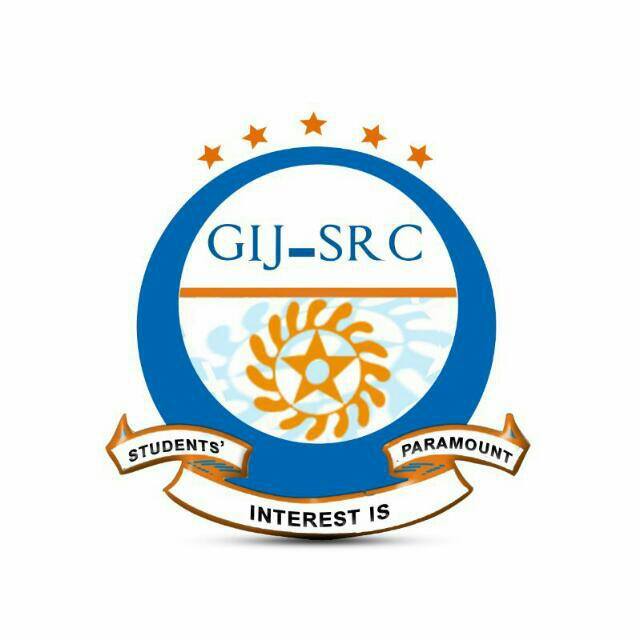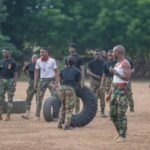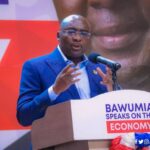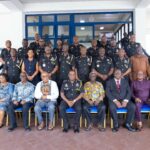GOVERNMENT, MEDIA MUST GET A FIXED FORMULA FOR ALLOCATING QUESTION SLOTS
 The Executive Committee of the Student Representative Council of the Ghana Institute of Journalism has noticed an ongoing media discourse on the performance of Ghanaian journalists at the presidential press encounter held on Wednesday, January 17, 2018 at the Flagstaff house in Accra.
The Executive Committee of the Student Representative Council of the Ghana Institute of Journalism has noticed an ongoing media discourse on the performance of Ghanaian journalists at the presidential press encounter held on Wednesday, January 17, 2018 at the Flagstaff house in Accra.
Key among these discussions have been calls by various civil society groups and individuals to scrap the encounter and coupled with a general admission of fallen standards in Journalism in the country.
Journalists have in various interviews been accused of being lazy, “not [ads1]on top of issues” and only interested in collecting “soli”.
As a journalism student body, we are impressed with the level of analysis and debate that has characterized the aftermath of the media encounter with the President. We are of the view that such analysis is vital for the development of the media in the 21st Century. As advocates of accountability, it is imperative that at a certain point in time, the media is placed under the same scrutiny its subject other players of society too. The whole debate about journalists and the nature of questions is good for the media fraternity and places the media in a better position to improve its performance.
It is, however, important to state that questions by journalists at such encounters must portray the views of the ordinary Ghanaians, hinged on the principle of enhancing the democracy we currently enjoy as a nation. Ghanaians would only recognize and appreciate the efforts of journalists when they ask questions they (Ghanaians) would ask the President when they meet him one-on-one.
In order to ensure that questions reflect the views of Ghanaians, we propose the following recommendations:
1. Journalists must ask research/quotes based questions. Current ratings by academicians, civil society, and policy think-tanks have been on the high for journalists who asked research-based questions. This for us proves that the ordinary Ghanaian is tired of the “he said, she said” style of questions they have always been fed with. Questions must be backed with tangible pieces of evidence that seek to solicit new information on existing issues.
2. Going forward, Ghanaian journalists must endeavor to adopt a design thinking approach in arriving at the questions they ask not only of the President but every person they get the opportunity to query. Journalists must through social media and other avenues, crowdsource questions from ordinary Ghanaians and present the salient ones at future Presidential encounters.
3. More importantly, Government and the media fraternity must adopt a formula before every presidential press encounter. This would put an end to the arbitrary way of randomly calling journalists to ask questions creating; a system where some journalists return home with their questions in their bags. Government, the Ghana Journalist Association and the media fraternity must agree on a formula for asking questions before any media encounter. We propose a three-hours encounter with the President where journalist can use 2 hours 30 minutes to ask questions. Within that period a maximum of 40 questions must be asked with quantitative allocation to media houses. The question and answer session should be regulated to satisfy broader spectrum of media houses, gender balance and regional balance rather than the existing structure of the President reading his address after which the Minister of Information randomly calls journalists. The number of questions must be regulated within a certain time and distributed evenly among media houses. This would ensure that journalist knows the number of slots they have before they show up for an encounter, completely eliminating the “I didn’t get the chance” to ask my questions syndrome.
4. The Presidency must also endeavor to hold regular press briefings with the Presidential corps on trending issues of national importance. This exercise would enhance Government information flow and eliminate the sometimes deafening silence we get from the Presidency whenever there are pressing issues.
We believe that it is in our interest as trainee journalist to contribute to deepening the practice and shape the future of Joyrnalism in this country and such germane issues surrounding an important Presidential exercise must be given the needed attention.
Signed
Nathaniel Alpha
General Secretary
GIJ/SRC
(0272196393)












